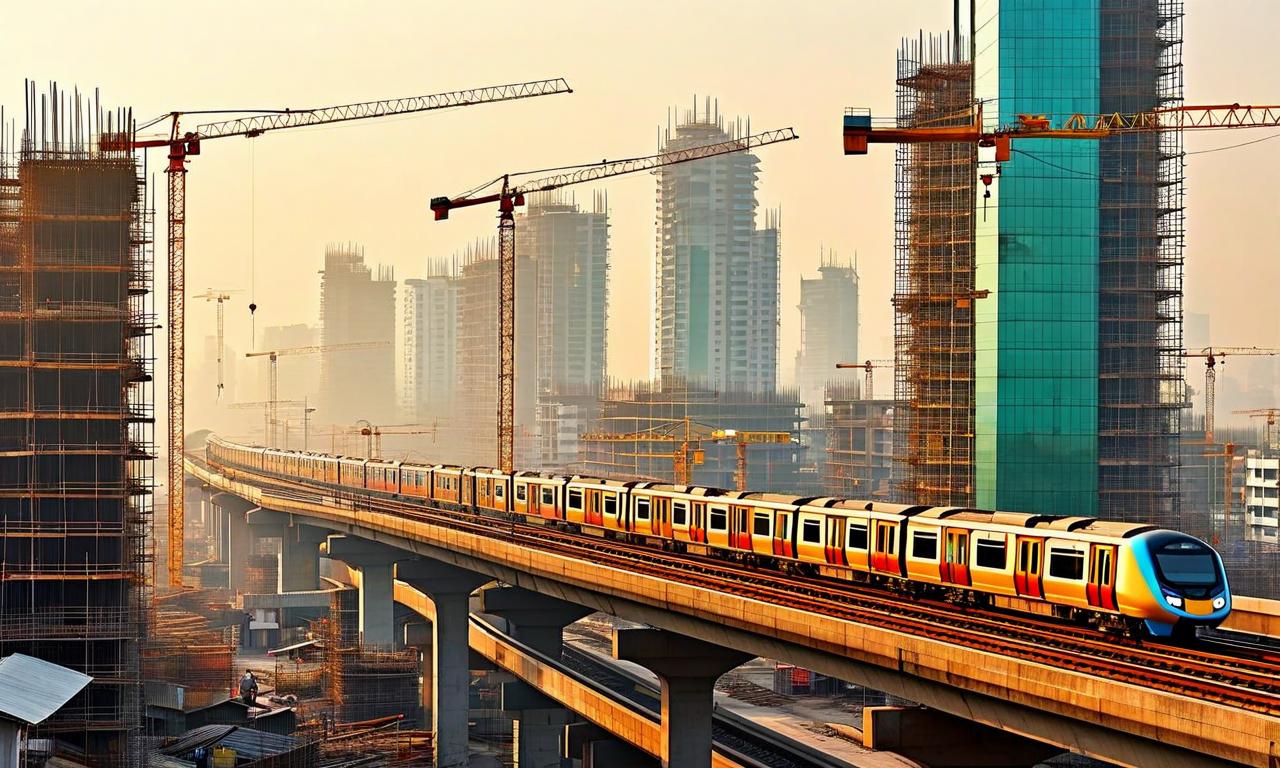Indian Real Estate Evolves into Stable, Globally Relevant Asset Class: Hero Realty CEO
The Indian real estate sector has transformed significantly over two decades, becoming a stable and globally relevant asset class. This evolution is attributed to sustained economic growth, regulatory reforms like RERA and GST, and increased institutional participation. Global investors, including Blackstone and Brookfield, have shown growing interest in the market. Infrastructure projects are reshaping demand patterns, with expressways and metro connectivity driving opportunities in new locations. Hero Realty, focusing on tier-1 cities, notes increasing customer aspirations for high-quality products. Residential demand remains resilient, while office REITs continue to attract strong investor interest.

*this image is generated using AI for illustrative purposes only.
The Indian real estate sector has undergone a significant transformation over the past two decades, evolving from an opaque and risky investment to a stable and globally relevant asset class, according to Rohit Kishore, CEO of Hero Realty. This shift has been driven by a combination of economic growth, regulatory reforms, and increased institutional participation.
Sustained Economic Growth and Regulatory Reforms
India's consistent GDP growth of over 6% annually has been a key factor in the real estate sector's evolution. This economic expansion has been complemented by crucial regulatory reforms, including:
- The Real Estate (Regulation and Development) Act (RERA)
- The introduction of Goods and Services Tax (GST)
- The establishment of Real Estate Investment Trusts (REITs)
These measures have significantly enhanced transparency and investor confidence in the sector.
Rising Global Investor Interest
The transformation of Indian real estate has attracted major global investors. Kishore highlighted that firms like Blackstone and Brookfield have become significant players in the market. Notably, Blackstone has participated in four out of the five listed REITs in India, underscoring the sector's growing appeal to international institutional investors.
Infrastructure Development Driving Demand
Infrastructure projects are reshaping demand patterns in the real estate market. Kishore pointed out that expressways such as the Dwarka Expressway and the Delhi-Mumbai Expressway are creating opportunities in non-traditional locations. Additionally, metro connectivity is driving 20-30% higher capital appreciation in areas it serves.
Hero Realty's Focus and Market Observations
Hero Realty primarily concentrates on tier-1 cities but remains open to opportunities in key tier-2 cities like Lucknow, the Tri-City region, and Jaipur, as well as NCR satellite towns. The company has observed increasing customer aspirations for high-quality products.
Current Market Trends
Kishore noted that residential demand remains resilient. Office REITs continue to outperform and attract strong investor interest, further solidifying the sector's position as a stable investment destination.
The transformation of Indian real estate into a de-risked, global asset class marks a significant milestone for the sector. With continued economic growth, regulatory support, and increasing global investor participation, the Indian real estate market appears poised for sustained growth and development in the coming years.














